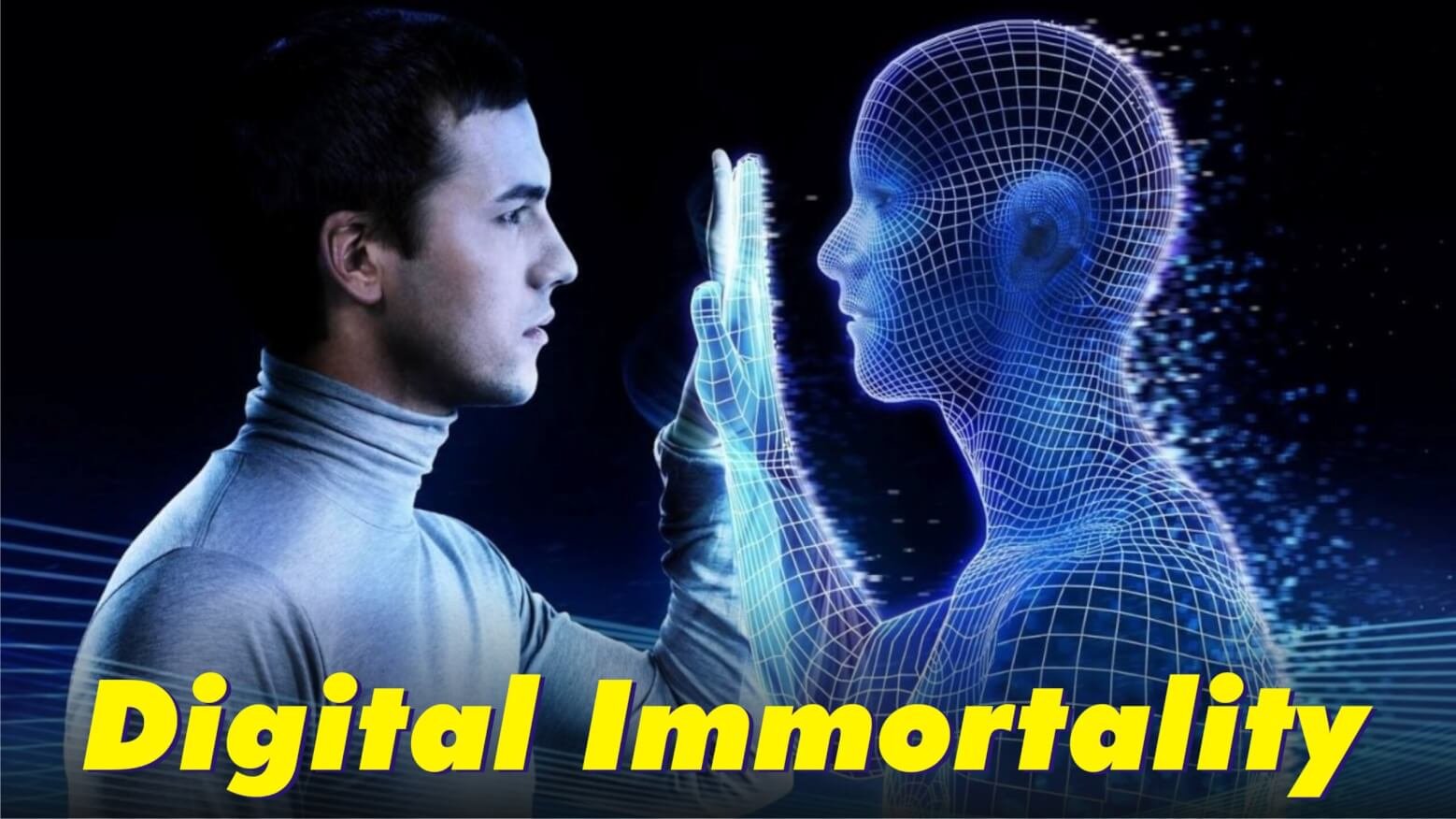Digital immortality is all about the concept of preserving your consciousness, memories, and personality in a digital form, allowing you to live on even after your physical body has ceased to exist. The futuristic idea has captivated the imagination of plenty of people sparking interest in the potential for achieving a unique eternal life through technology. In this guide, you can learn everything about exploring the fascinating digital immortality world, examining why people are interested in this concept, and the different ways it can be achieved.
Everything You Need To Know About Digital Immortality
Digital immortality revolves around the preservation or the replication of human consciousness and personality in a digital form. It envisions a future where advances in technology might enable you to exist beyond your physical bodies and persist in digital entities even in the virtual world.
Why Are People Today Interested In Digital Mortality?
The allure of digital immortality stems from the long-standing fascination of humanity with the concept of immortality list of people have sought different ways to transcend mortality and achieve what type of perpetual existence. The idea of preserving your consciousness and memories offer a sense of continuity, overcoming the inevitability of death and leaving a lasting legacy for your future generation fully.
Different Ways Of Achieving Digital Immortality
- One of the possible methods is to upload the entire content of your brain, like memories and personality, into a computer system. This would create a complete replica of your mind.
- Advancements in the brain-computer interfaces can enable direct communication between your brain and digital device, and there will be minimum lines between physical and digital existence.
- You can create lifelike digital avatars that embody your personality and appearance, and it can form a virtual immortality. This allows you to interact with others even after your death.
Technological Challenges Of Digital Immortality
- The vast amount of information required to store in your consciousness poses a lot of technological challenges as current storage capabilities fall far short of replicating the complexity of your brain.
- Achieving a digital avatar or consciousness that is indistinguishable from the natural person is a huge challenge considering the details of your behavior and consciousness.
- Safeguarding your digital self from hacking data breaches or unauthorized access is very important to ensure the protection of your identity and your personal information.
Storing Your Memories And Personality Digitally
It would be best if you researched brain-computer interfaces, and neuroprosthetics might offer potential ways to capture and store your memories digitally. Mapping neural connections and patterns can contribute to building a comprehensive digital representation of your consciousness.
Create Unique Digital Avatars
The advancement in artificial intelligence and deep learning algorithms have shown excellent results in creating realistic and interactive digital avatars. By feeding a massive amount of data into this system, they can mimic your human behavior and response with great accuracy.
Ensuring Digital Self Protection
To safeguard your digital self from threats, you must use strong encryption and cyber security measures. Furthermore, you must implement strict access control and secure authentication methods, as this can help you protect sensitive digital information.
Ethical Implications Of Digital Immortality
- The prospect of uploading your consciousness raises profound ethical questions like the issue of identity autonomy and the preservation of your individuality.
- If digital entities become more advanced than their biological counterparts, it might lead to challenging social and existential dilemmas blurring the lines between humans and the machine
- The ability to create digital copies of deceased people raises moral and ethical concerns about agency consent and the implications for your loved ones.
Realistic Possibility Of Digital Immortality
The idea of achieving a complete digital modality remains really speculative and faces several technological philosophical, and ethical challenges. While advancements are being made in different areas, the creation of completely conscious digital beings is still far away from reality.
Benefits And Risks Of Digital Immortality
The potential benefits include preserving your knowledge-creating interactive historical records, and allowing people to leave behind some legacy. But the risks include identity theft breaches and the potential for malicious use of digital self.
The Future Of Digital Immortality
The future of digital immortality is wholly entertained by technological progress, and society’s evolving perspectives might pave the way for a sophisticated virtual existence. Ethical considerations and regulations will play a very important role in shaping the potential path of digital immortality.
Cultural And Religious Perspectives
The concept of digital immortality raises intriguing questions about how various cultures and villages perceive the afterlife. Some people might embrace the idea of living on a digital being, while others might view it as a departure from the typical beliefs about the soul and afterlife.
Digital Legacy And Personal Branding
Digital immortality can influence how you curate your online presence and personal brand. Understanding your digital self might endure beyond your physical existence, and you might become more conscious of how you are perceived and remembered in the virtual world.
Virtual Worlds And Social Interactions
The development of virtual worlds and social platforms can provide you with a great ave. All the digital selves interact with people around, leading to a new era of social dynamics and relationships that will blend the physical and digital worlds.
Digital immortality remains a great concept that reflects your quest for perpetual existence. The desire to preserve consciousness and memories and regional form has prompted a lot of scientific and philosophical exploration. While the idea of digital immortality faces substantial technological and ethical hurdles, ongoing advancements in artificial intelligence, neuroscience, and computer technology bring it closer to the possible world. As you navigate the possibilities and challenges of digital immortality, it is important to approach the futuristic concept with ethical considerations and awareness of the potential implications for your future.



